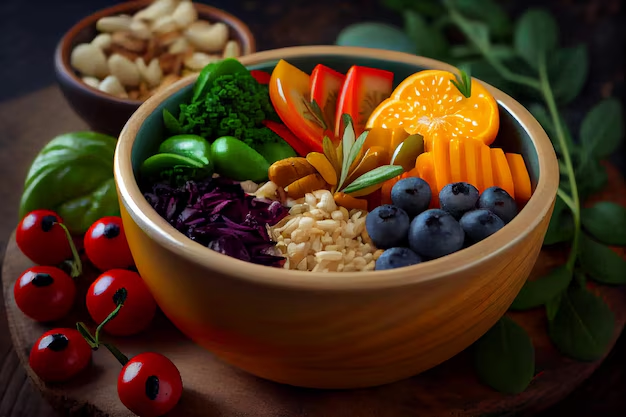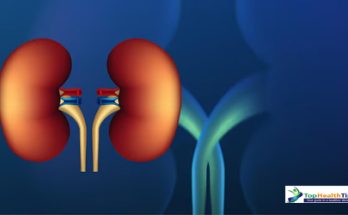Constipation can be uncomfortable and disruptive, but understanding how your eating habits impact your digestive system can help prevent it. This article will guide you through the dietary choices that can lead to constipation and offer practical tips to improve your digestive health.
What is Constipation?
Constipation is characterized by infrequent bowel movements, often less than three times a week, and difficulty passing stools. It can cause bloating, abdominal pain, and straining during bowel movements. Diet is a major factor influencing constipation, and making the right food choices can help alleviate and prevent this issue.

The Effects of Constipation
Constipation is more than just an occasional discomfort—it can have a range of effects on both physical and mental well-being. Understanding these effects can help underscore the importance of maintaining healthy digestive habits. Here’s a closer look at how constipation can impact your life.
1. Physical Discomfort
Abdominal Pain:
Constipation often leads to abdominal cramping and discomfort. The buildup of stool can cause pressure and pain in the lower abdomen.
Bloating and Gas:
When stool remains in the colon for too long, it can cause bloating and excess gas, leading to a swollen, uncomfortable feeling.
Hard, Dry Stools:
Constipation results in hard, dry stools that are difficult to pass, which can lead to painful bowel movements and potential bleeding.
Hemorrhoids:
Straining during bowel movements can cause or worsen hemorrhoids—swollen veins in the rectal area that can be painful and cause bleeding.
2. Digestive Complications
Fecal Impaction:
In severe cases, stool can become so hard and dry that it causes a blockage in the rectum or colon, known as fecal impaction. This condition may require medical intervention.
Colon Damage:
Chronic constipation can lead to stretching of the colon, known as colonic dilation, which can impair its function and lead to further digestive issues.
Anal Fissures:
Straining to pass hard stools can cause small tears in the skin around the anus, known as anal fissures, which can be painful and may bleed.
3. Psychological Impact
Stress and Anxiety:
The discomfort and unpredictability of constipation can lead to increased stress and anxiety. Concerns about bowel movements can impact daily activities and overall quality of life.
Reduced Quality of Life:
Chronic constipation can affect social interactions and daily routines, leading to decreased quality of life and a feeling of helplessness or frustration.
4. Impact on Overall Health
Nutrient Absorption:
Chronic constipation can impair the absorption of nutrients from food, leading to deficiencies and potential health issues over time.
Impact on Physical Activity:
Discomfort from constipation can lead to reduced physical activity, which can exacerbate the problem and contribute to a cycle of decreased digestive health.
Potential for Secondary Issues:
Constipation can sometimes be a symptom of underlying health conditions, such as irritable bowel syndrome (IBS) or thyroid disorders, which may require further medical evaluation and treatment.

Foods That May Contribute to Constipation
Certain foods can slow down digestion and contribute to constipation. Here are some common culprits:
1. Low-Fiber Foods
- Refined Grains: Foods like white bread, white rice, and pastries are low in fiber. Fiber helps add bulk to stools and promotes regular bowel movements.
- Processed Foods: Snacks such as chips and fast foods often lack fiber, which can hinder digestive function.
2. Dairy Products
- Milk and Cheese: Many people experience constipation when consuming dairy products. High-fat dairy can be particularly problematic, as it can slow down digestion and contribute to harder stools.
3. Red Meat
- Beef and Pork: These meats are rich in protein and fat but low in fiber. They can be harder to digest and may slow bowel movements.
4. Fried and Fatty Foods
- Fast Foods: Foods like burgers, fries, and fried chicken are high in fat and low in fiber. They can be difficult for the digestive system to process and may lead to constipation.
5. Sugary Foods
- Candy and Pastries: High sugar content without adequate fiber can disrupt normal bowel function and contribute to constipation.
Dietary Patterns That Affect Digestion
In addition to specific foods, certain eating habits can influence constipation:
1. Insufficient Fluid Intake
- Not Drinking Enough Water: Adequate hydration is essential for maintaining soft stools. Without enough fluids, the intestines can absorb too much water from the stool, leading to constipation.
2. Skipping Meals
- Irregular Eating Patterns: Skipping meals or eating irregularly can disrupt your digestive system. Consistent meal times help regulate bowel movements.
3. Lack of Physical Activity
- Sedentary Lifestyle: Regular physical activity helps stimulate bowel movements. A lack of exercise can contribute to slower digestion and constipation.
Tips for Preventing Constipation Through Diet
Making some simple dietary changes can significantly improve digestive health and prevent constipation. Here are some tips to help keep your digestive system functioning smoothly:
1. Increase Fiber Intake
- Fruits and Vegetables: Aim to include high-fiber fruits such as apples, pears, and berries, as well as vegetables like spinach, carrots, and broccoli.
- Whole Grains: Opt for whole-grain versions of bread, rice, and pasta. Foods like oats, quinoa, and barley are also excellent sources of fiber.
2. Stay Hydrated
- Drink Water: Aim to drink at least 8 glasses of water a day. Staying hydrated helps keep stools soft and promotes regular bowel movements.
3. Eat Regularly
- Consistent Meals: Eating at regular times helps maintain a steady digestive rhythm. Try to have meals and snacks at consistent times each day.
4. Include Probiotics
- Yogurt and Fermented Foods: Foods that contain probiotics, such as yogurt, kefir, and fermented vegetables, can support healthy gut bacteria and improve digestion.
5. Exercise Regularly
- Physical Activity: Engage in at least 30 minutes of moderate exercise most days of the week. Activities like walking, swimming, or cycling can stimulate bowel movements and improve overall digestive health.

Chart Title: High-Fiber Foods: Fiber Content per 100 Grams
Table Layout
| Food Item | Fiber Content (grams per 100 grams) | Health Benefits |
|---|---|---|
| Chia Seeds | 34 | Supports digestion and heart health |
| Lentils | 31 | Promotes gut health and satiety |
| Black Beans | 25 | Helps regulate blood sugar levels |
| Quinoa | 7 | Provides complete protein and fiber |
| Oats | 10 | Supports heart health and digestion |
| Apples | 2.4 | Aids in weight management |
| Broccoli | 2.6 | Provides essential vitamins and fiber |
| Whole Wheat Bread | 6.6 | Supports regular bowel movements |
| Almonds | 12 | Contributes to heart health |
| Sweet Potatoes | 3.3 | High in vitamins and fiber |

Diagnosis and When to Seek Help for Constipation
Constipation is a common condition that can often be managed with dietary and lifestyle changes. However, there are times when it may indicate a more serious underlying issue. Understanding how constipation is diagnosed and when to seek medical help is crucial for effective management and treatment.
1. Self-Diagnosis and Monitoring
Recognizing Symptoms:
- Infrequent Bowel Movements: Less than three times a week.
- Hard or Lumpy Stools: Difficulty passing stools.
- Straining: Pain or discomfort during bowel movements.
- Abdominal Discomfort: Cramping, bloating, or gas.
Tracking Symptoms:
- Keep a Bowel Diary: Note the frequency, consistency, and ease of bowel movements.
- Record Dietary and Lifestyle Changes: Track changes in diet, water intake, and physical activity.
Initial Self-Care Measures:
- Dietary Adjustments: Increase fiber intake, drink more water, and reduce consumption of constipating foods.
- Exercise: Incorporate regular physical activity into your routine.
- Over-the-Counter Remedies: Try laxatives or stool softeners as recommended by a pharmacist.
2. When to Seek Medical Help
Persistent Symptoms:
- Duration: If constipation lasts longer than a few weeks despite self-care measures.
- Severity: If symptoms are severe or worsening over time.
Accompanying Symptoms:
- Blood in Stools: Presence of bright red or dark blood.
- Unexplained Weight Loss: Significant weight loss without changes in diet or activity.
- Severe Abdominal Pain: Intense or persistent pain that doesn’t improve.
- Nausea and Vomiting: Symptoms that accompany constipation and suggest a possible blockage or other serious condition.
Potential Complications:
- Fecal Impaction: When stool becomes hard and lodged in the rectum, requiring medical intervention.
- Anal Fissures or Hemorrhoids: Painful tears or swollen veins in the anal area.
Underlying Health Conditions:
- Suspected IBS or Other Digestive Disorders: Persistent constipation with symptoms of irritable bowel syndrome (IBS) or other gastrointestinal conditions.
- Thyroid Issues: Symptoms that suggest thyroid problems, such as fatigue, weight changes, or cold intolerance.
3. Diagnostic Procedures
Medical Evaluation:
- Physical Examination: A doctor may perform a physical exam, including an abdominal and rectal exam.
- Medical History: Discuss your symptoms, dietary habits, and any current medications.
Diagnostic Tests:
- Blood Tests: To check for thyroid function, diabetes, or other underlying conditions.
- Imaging Studies: X-rays or abdominal ultrasound may be used to identify blockages or structural issues.
- Colonoscopy: A procedure to examine the colon for potential abnormalities, especially if symptoms are severe or persistent.
Specialist Consultation:
- Gastroenterologist: A specialist may be consulted for complex cases or if underlying gastrointestinal conditions are suspected.
4. Treatment and Follow-Up
Medical Treatments:
- Prescription Medications: If over-the-counter remedies are ineffective, a doctor may prescribe stronger medications or laxatives.
- Therapeutic Procedures: In some cases, procedures to relieve fecal impaction or other complications may be necessary.
Ongoing Management:
- Diet and Lifestyle Guidance: Continued support and guidance on diet, exercise, and hydration.
- Regular Monitoring: Follow-up appointments to monitor progress and adjust treatment as needed.
Timely diagnosis and medical intervention are crucial for effectively managing constipation and avoiding complications. While self-care can help, persistent or severe symptoms require professional evaluation to address underlying issues. Prompt medical advice can lead to better outcomes and improved digestive health
Related Post for disease & Remedy>>>
Conclusion
Diet and eating habits play a crucial role in managing and preventing constipation. By avoiding constipating foods and incorporating fiber-rich, hydrating, and probiotic foods into your diet, you can promote healthy digestion and prevent constipation. Regular exercise and consistent eating patterns further support digestive health, ensuring that your digestive system functions smoothly.
By understanding and adjusting your eating habits, you can take proactive steps to improve your digestive health and avoid the discomfort of constipation.
References:
- “Dietary Fiber and Constipation,” National Institute of Diabetes and Digestive and Kidney Diseases (NIDDK).
- “The Role of Dietary Habits in Constipation,” Journal of Gastroenterology and Hepatology.
- “Hydration and Digestive Health,” American Journal of Clinical Nutrition.




